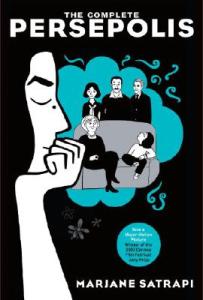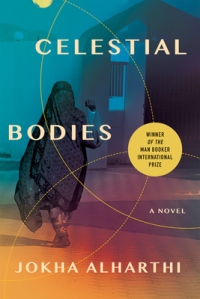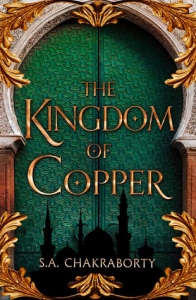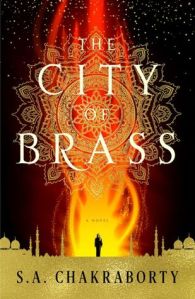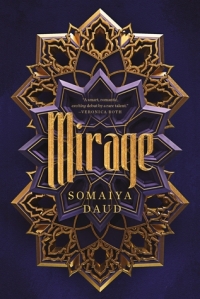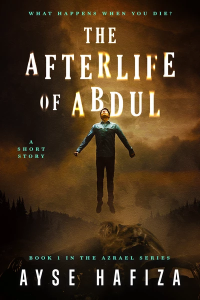Title: The Complete Persepolis
Author: Marjane Satrapi
Genre: Memoir
Trigger Warnings: Death, death of children, war, violence, government oppression, religious bigotry, misogyny, torture (mentions), imprisonment (brief, not to protagnoist), injuries, homophobia (brief), rape (mentions), drug use, divorce, suicide attempt, homelessness, xenophobia, slut-shaming (brief)
Back Cover:
Here, in one volume: Marjane Satrapi’s best-selling, internationally acclaimed graphic memoir.
Persepolis is the story of Satrapi’s unforgettable childhood and coming of age within a large and loving family in Tehran during the Islamic Revolution; of the contradictions between private life and public life in a country plagued by political upheaval; of her high school years in Vienna facing the trials of adolescence far from her family; of her homecoming–both sweet and terrible; and, finally, of her self-imposed exile from her beloved homeland. It is the chronicle of a girlhood and adolescence at once outrageous and familiar, a young life entwined with the history of her country yet filled with the universal trials and joys of growing up.
Edgy, searingly observant, and candid, often heartbreaking but threaded throughout with raw humor and hard-earned wisdom–Persepolis is a stunning work from one of the most highly regarded, singularly talented graphic artists at work today.
Review:
This is a memoir in graphic novel format, which is not something I’ve seen before. The art was very simplistic – not in a bad way, but it cut out a lot of visual detail to get to the heart of the story. I struggle with graphic novels usually, but this one was a little easier since it didn’t have a lot of visual complexity to distract from the words, and Marjane grew a beauty mark as a teenager which helped distinguish her from the other characters.
Being a memoir, there’s not so much a plot as themes. It’s a coming-of-age story, it’s a story of a fairly liberal country being crushed by a religious extremist government, it’s a story of a child struggling to understand the changes in her world as she grows up. It’s dark, sad, and heartbreaking by turns, but there’s also happy moments of joy and love and respite.
I vaguely remember learning about the Islamic Revolution in history – although being homeschooled by extremely Christian parents, it was more “Iran was just about to realize that all successful and advanced societies are Christian and convert, but the wreched Muslims didn’t want to see people following the true god so they took over and forced everyone to be Muslim again” than actual history. Marjane takes the names and dates of history and gives a face to a citizen. She is a single story out of millions, but her story brings to life what it was like to live in Iran during that era, and later what it was like to leave everything in Iran and study in Austria, a country far away from the Islamic Revolution.
Marjane tells her story well, and the accompanying art highlights what she tells. It is fascinating and compelling, and gives a voice to the ordinary people who lived under the Islamic Revolution regime. I think it is very worth reading.

